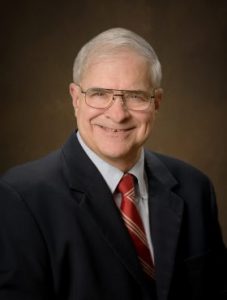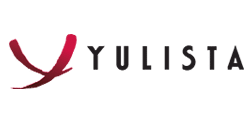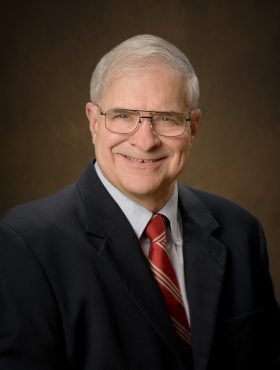The Huntsville/Madison County Chamber sent the following questions to candidates, to help you learn more about the people running in the August 28 Municipal Election. Here are the responses from Bill Kling, candidate for City Council District 4:

Bill Kling
Q: We all know there is a limited amount of money to meet a large variety of requests the City Council receives. If elected, how would you prioritize the requests for support that come before City Council for consideration?
A: These are the tough decisions that we have to make at budget time. There are numerous arts and social service agency requests that we get. My priorities have been agencies that are well-managed, provide a good service, and can show efforts to raise money from outside sources. The Public Library is a good example. Additionally, for $22,500, Huntsville Community Watch provides hundreds of thousands of volunteer hours.
Q: What would be your top priority if you are elected and how would you address it?
A: Traffic flow and road capacity is our biggest challenge. I voted for the one-cent sales tax increase that was used to fund Huntsville’s share of our five year, $250 million road package with the State. In the future, I will work to get more resources for road construction. Additionally, Traffic Engineer Specialists could be hired to improve traffic signal timing, add right turn lanes at specific intersections, etc.
Q: One of our greatest strengths is that we have a “small town feel” with mid-size city amenities. Do you agree with that statement? How would you approach your role as it relates to maintaining what is unique/special about Huntsville?
A: I think that we need to make sure that we do not lose our small-town feel. In many ways, we have amenities that exceed those of a mid-size city. Traffic flow improvement is needed, so that citizens can easily get to work and other destinations. We do not want Huntsville to become a city of traffic jams. Clean, non-polluting industry needs to be what we continue to recruit. Land use plans have helped to expand the city outward, instead of too much congestion in one small area. Entertainment opportunities for all, such as Top Golf, Campus 805, and the expansion of John Hunt Park have helped.
Q: How do you feel the City of Huntsville and the Huntsville City School System should work together to ensure that our young people receive a quality education?
A: As a former Huntsville City School Board member (1984-1988), I am very concerned about the financial problems of the School System. I have worked with the other City Council members to provide and fund joint-use gyms in neighborhoods. Additionally, I have worked with the School System to find neighborhood friendly buyers for vacated schools, such as Stone Middle School (Campus 805), West Huntsville Elementary School (business incubator), and Westlawn Middle School (business incubator). Last year, I publicly endorsed the School System’s property tax renewal. In short, I have worked to provide financial support for the schools.
Q: What specific action or activity do you feel would most positively impact the attraction and retention of young professionals to our community?
A: I have worked with others to bring in Whole Foods, Campus 805, The Stovehouse (2019), bicycle lanes, additional greenways, funding for extensive concerts and events to bring young people downtown, and zoning changes to increase the size of a house on a lot. We have recruited high paying jobs. We are getting Google Fiber internet installed throughout the city. We funded a lodging tax increase to fund a major expansion of the VBC.
Q: What do you feel is our community’s greatest strength, and how do you propose we build on it?
A: Our greatest strength is our quality of life. Housing costs are reasonable. We have a very strong arts program in the city. Race relations and the appreciation of diversity are overall good. The quality of education in our schools is good, although the School Board has financial issues to deal with. We have a lot of good things happening in the city. I want to keep the momentum going. It is important to aggressively address traffic flow or we will become so congested that our quality of life would be hurt.
Q: What do you feel is our community’s greatest weakness, and what is your plan to address it?
A: There are neighborhoods such as Triana Village and Bailey-Patton Estates that have not shared in the progress of the City. The creation of Neighborhood Civic Associations helps. Unfortunately, in some neighborhoods such as these, apathy by the residents has kept associations from being formed. Frequent Community Development Department inspections have helped. Neighborhood road resurfacing gives a neighborhood a “clean” appearance. Five times I have amended the budget to designate 2/3rds of the road resurfacing money to neighborhood streets. In the future, I would continue to help challenged neighborhoods.
Q: In your decision-making process, how would you balance the needs of working for your district with those of the City of Huntsville as a whole?
A: This is a delicate balance that I have dealt with in the past. Four years ago, I voted against the opposition of a neighborhood in the District, and sold University Park to UAH. I was able to get some concessions for the neighborhood: ball fields that were named after past neighborhood leaders kept their name, neighborhood residents have access to the park, and additional lighting was installed for improved security.



